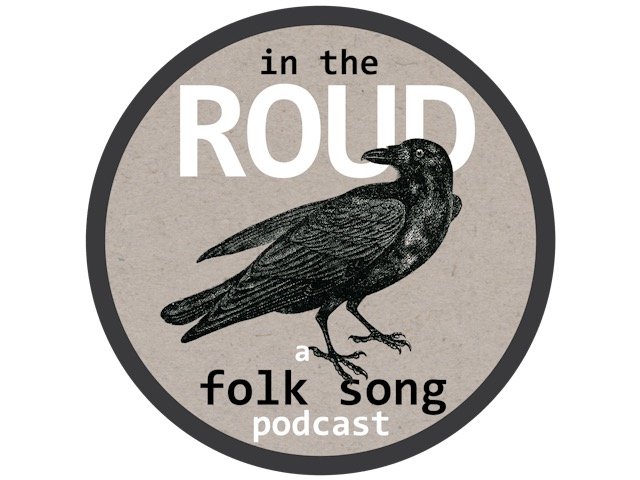1.8- A Carol for Christmas
For the final episode of our first season, we took inspiration from the stories behind some of our favourite Christmas Carols. Read on to discover what we found when we went digging into the famous Roud Index.
In the Roud
This week’s episode was supposed to focus on the story of the water nymph Sabrina. But the closer we got to recording, the more I felt that we needed something a bit more Christmassy to finish off the first series of the podcast. Enter inspiration in the form of the folk music podcast In the Roud. This fascinating pod, presented by folk singer Matt Quinn, explores the folk songs collated by Steve Roud. It is well worth a listen to hear the sheer breadth of knowledge about British folk music and to hear some of the icons of the folk scene perform. I would highly recommend starting with episode 0, where Steve Roud discusses the purpose of the index and how it works.
We’ve been obsessed with this podcast for a while and so we decided to take a look at some traditional English Christmas Carols from the Roud Index and see if we could find some festive tales to tell.
The Gloucestershire Wassail (Roud 209)
For me, there could only be one choice for the ultimate Christmas Carol. The Gloucestershire Wassail has it all: camaraderie, drinking, collective revelry and funny local folk customs. As Wyrd Folk is based in Gloucestershire it seemed rude not to include the carol in our first annual celebration of English Christmas carols.
Wassail is having something of a revival of late, thanks to the many burgeoning folk societies and new morris sides. Wherever there are apple orchards in abundance, there’s wassail. But did you know that there are two types of wassail? Most people are aware of the wassail that takes place in January to help bless and protect the apple harvest for the coming year. But fewer people are aware of the Christmas Eve tradition of the house-to-house wassail.
If you look at the lyrics to the Gloucestershire Wassail, it is all set out for you. ‘Wassail, wassail all over the town.’ When this song was collected from little villages and towns all over Gloucestershire in the early twentieth century, it was still the practice for revellers to go from house to house on Christmas Eve with their wooden wassail bowl to bring cheers and dance (and take away any food and booze people could give) to begin the Christmas celebrations.
Roud 209 is one of the songs in the Roud Index which has a seemingly infinite number of versions. While the tune remains almost the same, the lyrics seem to have been adapted to whoever the singer was addressing. And so we have the story of many a Gloucestershire village. Have a look for yourself on the Roud Index pages of the Vaughn Williams Memorial Library website.
There’s also an episode about Roud 209 coming soon on the In the Roud Patreon page.
Good King Wenceslas (Roud 24754)
Sam’s choice is a much more recognisable song but with a much stranger history. Virtually anyone in England can sing snatches of the story of Good King Wenceslas’s tale of Christian generosity. But very few people know the dark and ancient origins of the song.
Firstly, Wenceslas is a duke, not a king. In fact, he was the duke of Bohemia (now part of the modern Czech Republic).
And secondly, he was a popular folk hero whose memory was preserved after his untimely murder. Slain by his own brother, Wenscelas had such a reputation for generosity, especially with the poor and the hungry, that a cult very quickly grew around his memory.
But it wasn’t until 1853 that an English Catholic hymn writer took the legends around Wenscelas, turned them into the lyrics we know today and married them to a 13th-century spring carol called ‘tempus adest floridum’. An instant classic was born, bringing word of the Christian spirit of Duke Wenscelas to a new modern audience. Have a look for yourself by taking a scroll through the Roud Index.


